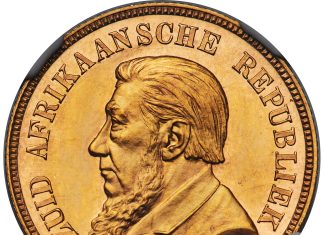
The Gold, silver, the noble metals, copper, crude, and stock index futures, all aimed to repair some of the recently inflicted price damage in the wake of what was deemed as ‘good news’ from Ireland and the wearing-away of some of the fears related to what China is up to, in its battle against inflation.
Naturally, the principal driver for these market moves was, once again, the US dollar’s slippage on the trade-weighted index. However, it is not like there was no market movement that was not related to China in certain niches.
Yuan forwards gained overnight as bets rose that China will in fact raise rates one more time prior to year-end, in order to extinguish the inflationary trend underway in the country. At least one researcher from the Academy of Social Sciences has urged a tightening of the country’s money supply, aimed at that very same target. There were also reports that a draft plan for China’s property development for the 2011-2015 period is ready for presentation to the government.
Then, there is always the possibility that China might resort to a bigger ‘gun’ in its resolve to contain price runaways.
ABC News alludes to "Another potential anti-inflation tool is even more politically volatile — allowing a faster rise in China’s tightly controlled currency, the yuan, which would cut import costs. Beijing has allowed the yuan to gain about 3 percent against the dollar since June but has resisted pressure from Washington and others for a faster rise, which would hurt China’s exporters and might cost jobs."
Rising risk appetite had the greenback losing 0.44 to sink to 78.53 on the aforementioned index, albeit the larger trend appears to still favor an approach towards the 80-mark on the back of the euro’s current woes. While US dollar-sellers were once again manifest this morning, they still have their speculative hands full with the (dollar-positive) prospects of rising US yields, the erosion of growth in the eurozone, and the possibility that contagion from the Irish situation might further undermine the European common currency. Some traders see the US dollar as trying to trigger a long-term bullish technical signal; one that could make for a similarly important inverse pivot point to look out for, in gold.
One item that may have been somewhat overlooked in yesterday’s reporting of the Q3 gold market statistics was certainly not overlooked by the analysts over at ABN/Amro/Virtual Metals. Their latest report covers the global gold hedge book developments (now down to only 5.5 million ounces, following the largest decline in the global hedge book in three quarters) and contains a word (or more) of caution:
"That AngloGold has sufficient confidence in the gold market for it to close out its hedge positions and gain full market exposure appears bullish for the gold price, but as the last gold major to unwind its book it also removes a key area of support. De-hedging has been an important source of gold demand in the past ten years, with about 105 million ounces of gold on a committed ounce basis having been bought back from the global hedge book since 2001."
Gold spot prices opened $17.90 higher this morning, continuing a price bounce that commenced during the post-dinner hour last night. Spot prices were indicated at $1,353.70 and the yellow metal traded in a broader $1,348-$1,358 band before the New York open. Gold maintained most of its opening gains following the weekly jobless claims filings (which showed an increase of 2,000 cases for the latest reporting period — less than the forecast consensus and yet another indication that the US labour market is possibly on the mend).
The US economy itself might be more on the ‘mend’ than is being seen by conventional wisdom at this time. This morning, markets expect to learn that the October leading indicators will reveal an increase that might turn out to be the largest in five months’ time. As well, the report containing the details of the manufacturing activity in the Philadelphia region — also due this morning-could indicated a faster pace of expansion this month.
Synchronous corrective moves were in evidence in most markets overnight as risk appetite made a comeback following news stories that Ireland may in fact be the beneficiary of a ‘funding pool’ upon which its troubled banking sector may draw when/if needed. The EU/IMF ‘package’ would be placed into ‘ready’ mode as soon as discussions between officials come to a close and the books of Ireland’s banks are parsed by analysts.
In any case, some ‘tens of billions’ of euros might be offered to solve the problem and prevent contagion from spreading into the recovering eurozone. British banks have more than $222 billion worth of exposure to Ireland and it is clear why the country’s Chancellor of the Exchequer made a "Britain stands ready to assist Ireland" statement at this juncture.
Meanwhile, Greece, which made all the headlines earlier this year, plans to reduce its budget deficit by 5 billion euros in the coming year. State expenditures will be on the chopping block, as will be the prospect of higher sales taxes. At that point, there is a chance that the country’s deficit will be narrowed to but 7.4% of its GDP. Recall that the ‘target’ suggested by Greece’s ‘helpers’ — the same EU/IMF duo that is now grappling with Irish ‘issues’ — was 7.6%. As a result of such moves, the Greek economy is expected to shrink by about 3% in the coming year.
Back in the USA, the overlaying of politics on top of economics keeps being the fashion of the day. It is suddenly legit to take the Fed to task, to speak like an economist even when one is clueless, and to pander to one’s constituents with promises of "Vote for me and I fill fix this mess" galore. Marketwatch’s Nick Godt feels that the great narrative on debt and on inflation must be controlled — for obvious reasons that are perhaps not so obvious to voters (and not just in the US). Never mind the danger such an approach possibly poses to the economy (and by extrapolation, on a social level — potentially).
"The key lessons from the Great Depression, that deficits soar after an economic shock as tax receipts drop, and that more, not less government spending is necessary to get back on track when consumers and businesses have stopped spending, has been globally brushed aside.
The U.S., where fiscal spending that was too small to begin with, has been stopped in its tracks by anti-government rhetoric, as inflation keeps on sliding and growth has stalled. On Wednesday, the Labor Department reported a smaller-than-expected 0.2% rise in consumer prices, while core inflation, excluding volatile food and energy prices, was flat for the third straight month.
Yet, it’s also this week that Republicans sent a letter attacking Fed policy, warning again about inflation. Were they thinking about inflation in China? Or just like China, were they using the narrative to push another agenda, such as keeping in place tax breaks for the rich?"
[Insert ‘interesting, coincidental’ factoid du jour here: Virtually half of Congressional members are millionaires, compared to 1% for society at large in America, notes a post in the Center’s OpenSecrets blog. And among this group, eight members of Congress are mega-millionaires, with portfolios above $100 million.]
Controlling the narrative, they have found, seems to help one’s agenda." concludes Mr. Godt.
Well, then, ff so inclined, you may find the various genres of the narrative relating to the crisis that still has everyone talking and writing, at the RSA.org link herein.
Until tomorrow,
Jon Nadler
Senior Analyst
Kitco Metals Inc.
North America
www.kitco.com and www.kitco.cn
Blog: http://www.kitco.com/ind/index.html#nadler
Article: Rich Relations










